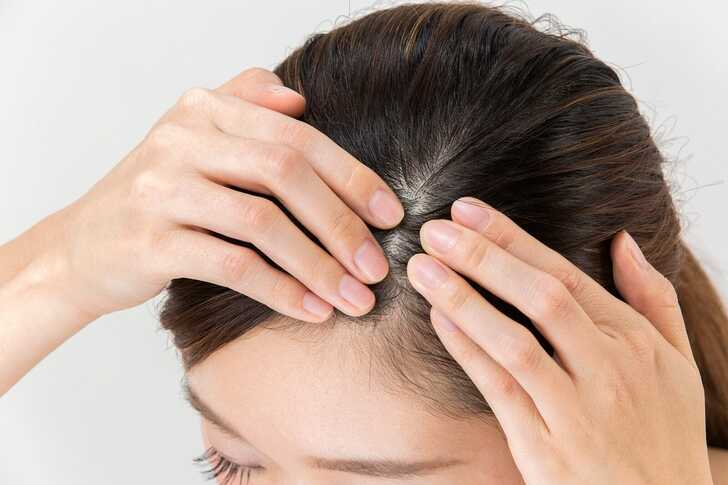The Best Travel Pillows 2024 – Pick the Right Buddy for Your Neck!
Tips and Tricks to Get A Discount in Disney
How to Choose the Right Air Fryer for Your Kitchen?
12 Best IKEA Kitchen Products to Upgrade Your Space
How to Meditate at Home: A Beginner's Guide
Revealing the Mysteries: Spirituality Vs Religion Which Path is Yours?
Scalp Psoriasis: Signs, Symptoms and Effective Treatments
Scalp psoriasis is a common skin condition that causes itchy, red, and scaly patches on the scalp. Knowing the signs, symptoms, and available treatments can help effectively manage the condition.
Scalp psoriasis is a common skin condition that causes itchy, red, and scaly patches on the scalp. Knowing the signs, symptoms, and available treatments can help effectively manage the condition.

What is scalp psoriasis?
Scalp psoriasis is a chronic autoimmune disease that causes an overproduction of skin cells, resulting in red patches and thick scales on the scalp. It affects millions of people worldwide and ranges from mild to severe.
Symptoms of Scalp Psoriasis
Recognizing the early signs of scalp psoriasis is important to effectively treat the condition. Here are 10 common signs:
- Red patches on the scalp: Visible, inflamed red areas that are often covered with silvery scales.
- Thickened skin: Some areas of the scalp may feel thicker than usual due to a buildup of skin cells.
- Dryness: The scalp may become overly dry, leading to dandruff.
- Silver scales: Flaky, white, or silvery scales that resemble scales, but are thicker.
- Plaques: Raised areas of skin covered with a thick layer of scales.
- Bumps on the skin: Raised bumps may appear on the affected area, especially near the hair follicles.
- Scabbing:Scab-like structures may form on the scalp.
- Swelling: The inflamed area may feel tender or swollen.
- Itching: Severe itching that may interfere with daily life.
- Hair loss: Excessive scratching or inflammation can cause temporary hair loss.
Symptoms of scalp psoriasis
While the signs are obvious, the symptoms are often related to how the condition feels. Here are the 10 most common symptoms of scalp psoriasis:
- Itching: Constant itching can range from mild to severe.
- Burning: The affected area may feel like burning or stinging.
- Pain or soreness: Some people experience tenderness or pain in the inflamed area.
- Flaking: Large flakes of skin may fall off the scalp, sometimes looking like severe dandruff.
- Irritation: The skin on the scalp may become irritated and sensitive to the touch.
- Bleeding: Excessive scratching or tearing of the skin can cause bleeding.
- Cracking of the skin: Dry skin may crack, which can be painful.
- Tightness: The skin may feel tight and uncomfortable, especially when the scalp is moved.
- Hair loss: Although temporary, hair loss may occur due to inflammation and scratching.
- Emotional distress: Scalp psoriasis may cause embarrassment or stress due to its appearance and discomfort.
Treatments for scalp psoriasis
Effective treatment of scalp psoriasis often requires a combination of treatments. Here are 10 commonly recommended treatments:
- Topical corticosteroids: These are anti-inflammatory creams or ointments that relieve swelling and itching.
- Medicated shampoos: Shampoos with ingredients such as coal tar, salicylic acid, or ketoconazole can help reduce scaling and itching.
- Light therapy: UVB light therapy helps slow the growth of skin cells and reduce inflammation.
- Topical retinoids: Vitamin A derivatives help slow the production of skin cells.
- Vitamin D analogs: Creams that mimic the effects of vitamin D can slow the growth of skin cells and reduce skin sagging.
- Coal tar products: These products help reduce scaling, inflammation, and itching.
- Systemic treatments: In severe cases, oral or injectable medications (such as methotrexate or biologics) may be prescribed to combat the immune response.
- Salicylic acid: Helps remove dandruff and reduce thickened skin on the scalp.
- Moisturizer: Regular use of a moisturizer can help keep your scalp hydrated and reduce dandruff.
- Scalp scrubs:Gently exfoliating your scalp using certain products can help remove dandruff and reduce the appearance of dandruff.
Common questions about scalp psoriasis
What causes scalp psoriasis?
Common triggers include stress, cold weather, skin injuries, infections, and certain medications. Identifying and avoiding triggers can help manage flare-ups.
Is scalp psoriasis contagious?
No, scalp psoriasis is not contagious. It is an autoimmune disease, so it is not spread through contact with other people.
How long does scalp psoriasis last?
Scalp psoriasis is a chronic condition, which means it can last a lifetime. However, it often goes through cycles of remission and recurrence, and proper treatment can help control symptoms.
Can scalp psoriasis cause permanent hair loss?
While scalp psoriasis can cause temporary hair loss due to inflammation and scratching, it rarely causes permanent hair loss.
What is the difference between scalp psoriasis and dandruff?
While both scalp psoriasis and dandruff cause flakes, psoriasis causes thicker, silvery scales and inflamed areas, while dandruff tends to be finer and associated with an oily or dry scalp.
Can scalp psoriasis spread to other parts of the body?
Yes, psoriasis can affect various parts of the body, including elbows, knees, and other areas of skin.
Can diet affect scalp psoriasis?
Diet can affect psoriasis in some people. An anti-inflammatory diet rich in fruits, vegetables, and omega-3 fatty acids can help relieve symptoms.
Is there a treatment for scalp psoriasis?
There is currently no cure for psoriasis, but treatments can help effectively manage and reduce symptoms.
Can stress make scalp psoriasis worse?
Yes, stress is a common trigger for psoriasis flare-ups. Stress management techniques can help reduce the frequency and severity of flare-ups.
How often should I use medicated shampoo for scalp psoriasis?
Medicated shampoo should be used as directed by your doctor. Overuse can irritate the scalp, so it is important to follow the recommended treatment regimen.
Comparison of treatments based on effectiveness
| Type of treatment | Effectiveness | Time until results appear | Common side effects |
| Topical corticosteroids | High | 1-2 weeks | Thinning, irritation of the skin |
| Medicated shampoo | Mild | 2-4 weeks | Dryness, stinging |
| Light therapy (UVB) | High | Several weeks | Redness, burning |
| Topical retinoids | Mild | 4-6 weeks | Irritation, dryness |
| Vitamin D analogs | Mild | 4-6 weeks | Dryness, redness |
| Coal tar products | Relief | 2-4 weeks | Strong coloring, strong odor |
| Systemic treatments | High | 2-3 months | Nausea, fatigue, immune system suppression |
| Salicylic acid | Relief | 2-4 weeks | Dryness, skin irritation |
| Moisturizers | Low | Ongoing | None (except in allergic cases) |
| Scalp peeling | Low | Ongoing | Redness, irritation |
Conclusion
Scalp psoriasis can be effectively treated with the right treatment plan. By understanding the signs, symptoms, and available treatments, patients can find relief and improve their quality of life.











